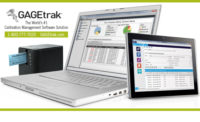Step by Step: Technology and Best Practices

It would be an obvious understatement to say that technology plays a key role in just about everything we do, as well as how we do it.
Take just one small example—banking. It used to be that we would have to physically go to the bank to deposit paychecks or withdraw money. Then came automated teller machines, or ATMS, with thousands of locations to make transactions, providing us with much more convenience for our banking needs. Now, we have apps on our phones that allow us to take a picture of our paychecks for deposit, move our money and assets around, and debit cards for making purchases on the Internet. We literally do not have to leave our homes to accomplish our banking needs.
For conducting business, technology is so important that there are a number of best practice plans for efficiently and cost-effectively implementing technology into our business processes. In fact, there are instances where technology has enabled revolutionary efficiencies to be realized in the best practices of entire industries.
According to “6 Ways Technology Has Streamlined the Sales Process,” author Stuart Leung writes, “Technology is constantly evolving, and businesses are becoming more and more dependent on technology to run their businesses efficiently.” As Leung writes, “Technology is transforming businesses and disrupting entire industries. One of those industries that has been heavily affected is sales. From prospecting to closing, today’s mobile, social, big data, and cloud technologies are revamping the sales process in ways that would have been unthinkable only a few decades ago.”
A May 30, 2018, article in Healthcare Weekly states that doctors spend less than a third (27%) of their time treating patients. The article, “5 Ways Technology Can Reduce Healthcare Costs,” further states that “the majority of their time is spent on various administrative tasks. In fact, some doctors spend up to one-third of their time just entering patient notes into electronic health records (EHRs).”
In an attempt to take back control from the assault on doctors’ time, the healthcare industry is using Artificial intelligence (AI) and basic digital software to “limit—even automate—physician interactions with EHRs.
Some other technology based best practices in healthcare also include scheduling apps, digital marketing, improved claims processing, and optimizing the supply chain.
And if you want to know the success technology has had on warehousing and e-commerce, just ask Jeff Bezos how much he is worth…even after the divorce.
Striking a little closer to home, there have been successful strides made to improve the laser tracker process. As author Leah Pickett writes, “To take measurements, operators historically followed a series of steps: set up the tracker on a tripod with an unobstructed view of the object, remove the target from the tracker and carry it to the object, place the target against the object, and trigger the tracker to take measurements at certain points, often via a remote control and with the help of software to calculate deviations. Today, the process is much easier and faster than this, with a higher level of accuracy.”
So check out “New Features, Industries Elevate Laser Trackers” and everything else we have to offer in this month’s Quality.
Enjoy and thanks for reading!
Looking for a reprint of this article?
From high-res PDFs to custom plaques, order your copy today!









